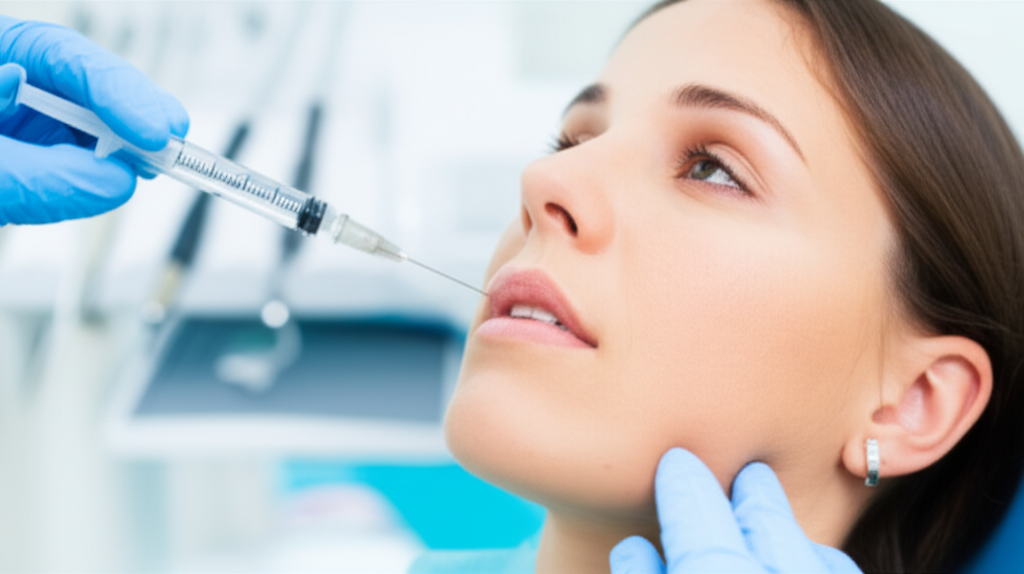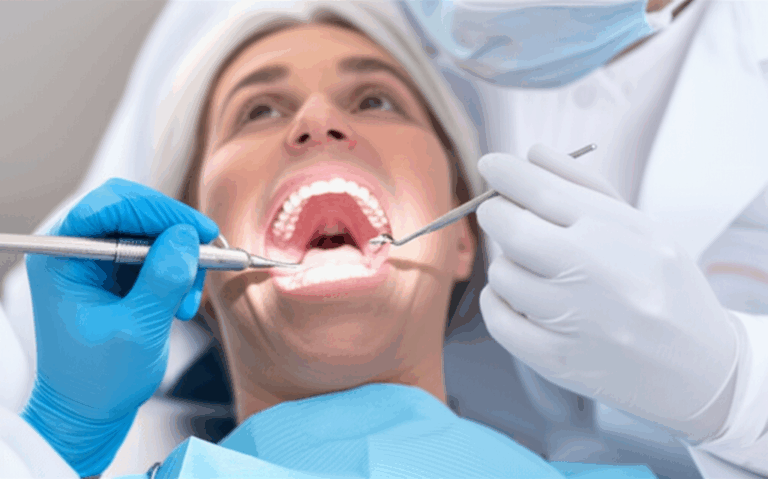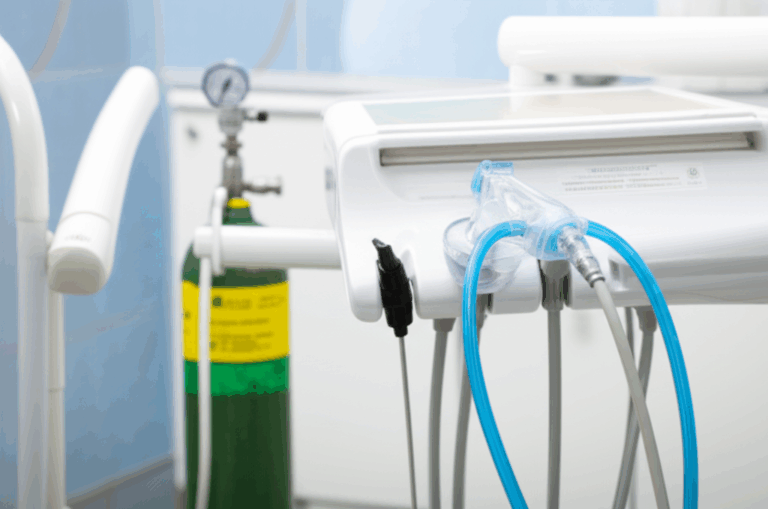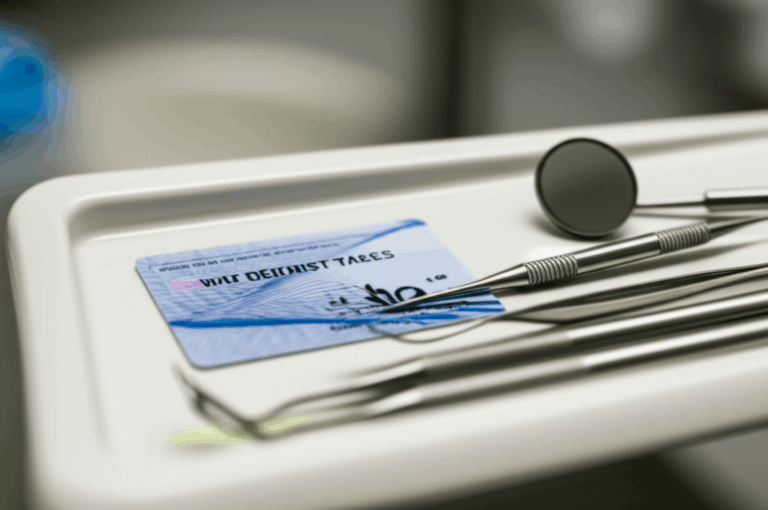
Does the Numbing Shot at the Dentist Hurt? What to Expect & How to Reduce Discomfort
That moment when you hear, “You’ll feel a little pinch,” and your heart jumps—sound familiar? If you’re worried about getting a numbing shot at the dentist, you’re definitely not alone. Being afraid of pain or just not knowing what will happen can make even simple dental visits feel scary, especially if you had a tough time before. But here’s something good: That well-known dental shot usually hurts way less than you think. Thanks to new dental methods and lots of research, most people describe it as a quick pinch or sting—uncomfortable for a second or two, but totally okay.
In this guide, I’ll break down what really happens when your dentist numbs your mouth, explain why some folks get more nervous than others, and—best of all—give you doable tips so you and your dental team can make your visit as easy as possible. Let’s face your fear and set you up for a pain-free dental visit!
In This Article
- What Does the Numbing Shot at the Dentist Really Feel Like?
- The Science Behind Dental Numbing: Why You Feel What You Feel
- What Affects How Much the Shot Hurts?
- How Dentists Reduce Discomfort (Modern Comfort Techniques)
- What You Can Do: Strategies for Less Pain and More Peace
- After the Shot: What to Expect (and What You Should Do)
- Is It Worth It? Why the Tiny Discomfort Matters
- Your Healthy Takeaway (Summary & Next Steps)
What Does the Numbing Shot at the Dentist Really Feel Like?
Let’s start with the main question: Does the numbing shot hurt?
The short answer? Most people just feel a quick pinch or sting—way less than they feared. Dentists have worked hard to make sure the shot hurts as little as possible. Still, everyone’s different, so it helps to know what to expect, step by step.
Step-by-Step: What You’ll Feel
1. The Pre-Numbing Gel (Topical Anesthetic)
Before using the needle, your dentist usually puts a jelly or spray on your gum or inner cheek. This numbs the surface. It might taste weird or tingle a bit, but it won’t hurt.
2. The “Poke” (Initial Needle Insertion)
This part gets all the worry. Yes, you might feel a sharp, quick pinch when the needle goes in. But this feeling is super short—over before you really know it. Many people say it’s like a mosquito bite or a small scratch.
3. The “Sting” or “Burn” (Anesthetic Going In)
Sometimes, when the numbing medicine goes in, you might feel a mild burning or stinging. This is because of the medicine’s acidity (pH) and its temperature, not just the needle. It goes away fast—usually in 5-10 seconds—as the numbing starts.
4. The “Pressure” (Numbing Expands)
As the medicine spreads out, you’ll probably feel a bit of pressure or fullness, like someone gently pushing your gums. This is just the medicine moving—not pain.
5. Numbness Sets In (Sweet Relief!)
In a minute or so (sometimes up to five), your lip, cheek, tongue, or jaw starts to feel thick or tingly. Talking and eating will feel odd, but you shouldn’t feel pain anymore. Thanks to numbing, the rest of your dental work should feel fine.
##### Real Patient Perspective:
“Honestly, the worst part is worrying about it. By the time they finish talking, the shot is done.” – Anna, age 37
The Science Behind Dental Numbing: Why You Feel What You Feel
Wondering why you feel these things? Here’s a simple explanation.
What Exactly Is Dental Numbing?
Dental numbing is done using a local anesthetic—usually lidocaine or articaine. These medicines block pain signals from nerves in your teeth, gums, or jaw so the signals never reach your brain. So, it’s like setting up a roadblock so the “ouch” messages can’t get through.
Why the “Burning” or “Stinging” Feeling?
- Medicine’s Acidity: Most numbing medicines are a little acidic to keep them fresh. Your mouth likes things more neutral, so a short “sting” lets you know the difference. It’s not dangerous—just how it works.
- Temperature: If the medicine is colder than your mouth, you might feel a cold “zap.” Some dentists warm it up to avoid this.
- Speed of Injection: Putting the medicine in too fast can stretch the tissue and cause more pressure and burning. Going slow helps.
A Helpful Analogy:
Picture your gums like a sponge. If you squeeze medicine in too quickly, the sponge doesn’t like it. Send it in slowly, and it soaks it up nicely.
What Affects How Much the Shot Hurts?
Some people barely notice the numbing shot, while others get really tense. Why is that? Pain feels different to everyone. Here’s what matters:
1. Dentist’s Skill and Way of Working
- Gentle hands: Soft, slow movements keep things from hurting.
- Small needles: Thin needles make smaller holes.
- New gadgets: Some dentists have computer-controlled tools (like The Wand) that put the medicine in so smoothly people barely feel it.
2. Your Own Nerves
Worry and stress make your mind focus on pain, making it stronger.
- If you expect it to hurt, it might feel worse.
- People who practice breathing or stay calm often say it hurts less.
3. Where the Shot Goes
- Gums in the front are less sensitive than the roof of your mouth (palate), which has more nerve endings.
- Infections or swelling can also make things hurt more, and it might take more medicine or more time to get numb.
4. Your Own Pain Tolerance
- Everyone feels pain differently. What’s “nothing” for one person can bother someone else more.
- Genes, past dental visits, even if you slept or drank enough water, can change how you feel.
5. Type of Numbing Medicine
- Most dentists use lidocaine or articaine. Both work fast, but if you’re very sensitive, let your dentist know—sometimes they can try a different medicine or adjust it to make it sting less.
Supporting Data (Good to Know)
- Up to 80% of people say the shot is “mild or less,” especially when dentists use the gel first.
- Computer-guided shots can lower pain by up to 70% in tough spots.
How Dentists Reduce Discomfort (Modern Comfort Techniques)
You might be surprised how much dentists try to make the numbing shot easy. Here’s what they do:
Top Ways Dentists Make You More Comfortable
- Always Use Numbing Gel: That jelly or spray is your first helper against the needle.
- Warm the Medicine: Closer to body temp means less of a shock.
- Inject Slowly: Slow and steady causes less burning and poking.
- Use Thin Needles: Smaller needles are softer, especially for kids or nervous adults.
- Distract You: Some dentists talk with you, ask you to wiggle your toes, or use a little gadget on your cheek to “trick” your nerves, so you barely notice the shot.
- Use Cool Tech: Computer-controlled machines like The Wand can make even tough shots, like on the roof of your mouth, almost painless.
- Offer Sedation: If you’re really nervous, they might use “laughing gas” or calming pills. Ask your dentist if you want these options.
Your Dentist Watches Carefully
Dentists check:
- Are you tensing up?
- Do you need more time for the gel to work?
- Is the medicine going in too fast?
- Are you holding your breath?
A good dentist will stop and ask if you’re okay. Don’t be afraid to say how you’re feeling.
What You Can Do: Strategies for Less Pain and More Peace
You’re part of the team! Here are things you can do to feel better before and during your dental visit.
1. Speak Up About Your Worries
Tell your dentist if you’re scared or worried about pain. Ask for a break or the numbing gel if they didn’t mention it. Most dental folks want to help—they just need to know.
2. Breathe Deeply
When scared, we hold our breath, which can make things feel worse.
- Breathe in slowly through your nose for four counts, then out for six.
- Picture your stress leaving each time you breathe out.
- Do this before and during the shot—it really helps.
3. Keep Your Mind Busy
- Bring music or a podcast with headphones.
- Hold a favorite fidget toy or stress ball.
- Stare at a spot on the ceiling or count backwards from 100—anything to distract yourself.
4. Ask About Ways to Make It Easier
- Is there sedation? Nitrous oxide or stress-reducing medicine can make visits much easier.
- Does the office use the newest numbing tools?
- Some clinics are extra gentle for nervous people or kids, making it easier for everyone.
5. Pick a Dentist That Cares About Comfort
Before you go, check out dentists who talk about gentle care or using new numbing methods. A kind dentist makes all the difference.
- Some dental offices that use a digital dental lab or crown and bridge lab keep up with new ways to make patients comfy, not just with dental stuff, but for your feelings too.
6. Take Care of Yourself: Drink and Rest
- Pain feels worse if you’re tired, hungry, or haven’t drunk enough water. Drink water and sleep well before your visit. Bring a friend for support if you want!
After the Shot: What to Expect (and What You Should Do)
You made it through the numbing shot—nice job! So now what?
How Long Does Numbness Last?
- Numb lips, tongue, and cheek—usually lasts 1-3 hours. It depends on the type and amount of medicine, and where they put the shot.
What Does It Feel Like?
- Kind of “thick” or puffy.
- Maybe you drool or have trouble talking—don’t bite your cheek!
- Eating and drinking will feel weird until the feeling comes back.
Safety Tips
- Don’t eat hot foods or have hot drinks while numb—you might burn yourself.
- Avoid chewing—soft stuff with your front teeth is best, but skip chips, steak, or crunchy things.
- Don’t talk too much or chew gum right away—you could bite your tongue or lip, and that stings later.
Shot Soreness
- A little soreness or tenderness is normal for a couple hours.
- Gently rinsing with warm salt water can help.
- If you have swelling, numbness that won’t go away, or serious pain, call your dentist—this is rare.
Is It Worth It? Why the Tiny Discomfort Matters
Let’s be honest: no one loves getting numbed. But here’s why that small pinch is important:
- It lets your dentist fix teeth, fill cavities, or pull teeth without pain.
- Local numbing means no pain from drills or tools—a huge help!
- New numbing methods have made dental visits comfy for people who used to be scared.
- Taking care of small problems (and not skipping visits out of fear) means less time in the dentist chair, less work needed, and healthier teeth.
So, a tiny bit of pain now helps keep your smile healthy in the long run.
Your Healthy Takeaway (Summary & Next Steps)
Let’s recap with some easy tips you can use now.
Main Points:
- The numbing shot feels like a quick pinch or sting—usually way less than you think.
- Numbing gel, a gentle dentist, and slow shots make it even easier.
- Anxiety can make pain worse, so breathing and other tricks help!
- Tell your dental team how you feel—they want you to be comfortable.
- Go easy on your numb mouth afterward, and don’t bite yourself until the feeling is back.
- Facing this small worry means you get pain-free dental care and keep your teeth healthy.
What to Do Next:
Taking charge of your dental care is the first step to making every visit easier. Whether you’re getting a cleaning, a filling, or a new crown from a china dental lab, you can walk in with confidence!
References & Trust Signals
- American Dental Association: Understanding Dental Procedures and Pain Control
- Journal of Dental Anesthesia and Pain Medicine: “Patient Perceptions of Dental Injection Discomfort” (2017)
- Cochrane Database of Systematic Reviews: “Topical Anesthetics for Reducing Injection Pain” (2020)
- Journal of the American Dental Association: “Pain Perception With Computer-Controlled Anesthetic Delivery” (2015)
Checked by a real dentist to make sure it’s true—your comfort and understanding matter most.
Frequently Asked Questions
Q: Is it normal to be scared of the numbing shot?
A: Yes, super normal. Lots of people are nervous, and your dentist understands. Tell them so they can help you feel better.
Q: Can my child handle the numbing shot?
A: Kids’ dentists use the softest ways and numbing jellies. Most kids are easily distracted; bring a toy or music for comfort.
Q: Will one shot be enough if I have an infection?
A: Sometimes, swollen tissue needs more numbing or more time. Your dentist will check and give more if you need it.
Q: Why do I feel numb in my lip or cheek, not just the tooth?
A: The medicine blocks all nearby nerves. That’s why your jaw, cheek, or tongue can feel tingly—the medicine works in the whole area.
Q: What if I really, truly can’t do it?
A: Sedation dentistry (like laughing gas or calming pills) is for people super scared of shots or dental work. Just let your dentist know—you have options.
Ready to take care of your teeth without fear and with all your questions answered? Schedule your next dentist visit—now you know how to make it pain-free and easy.
Want to know more about dental stuff or how today’s coolest tools make care so comfortable? Check out how a trusted implant dental laboratory helps make modern dentistry easier and keeps your smile strong.
Remember: It’s your mouth, your choice, your comfort. With the right team and tools, every dentist visit can be easy and even stress-free. Take a deep breath—you’ve got this!








